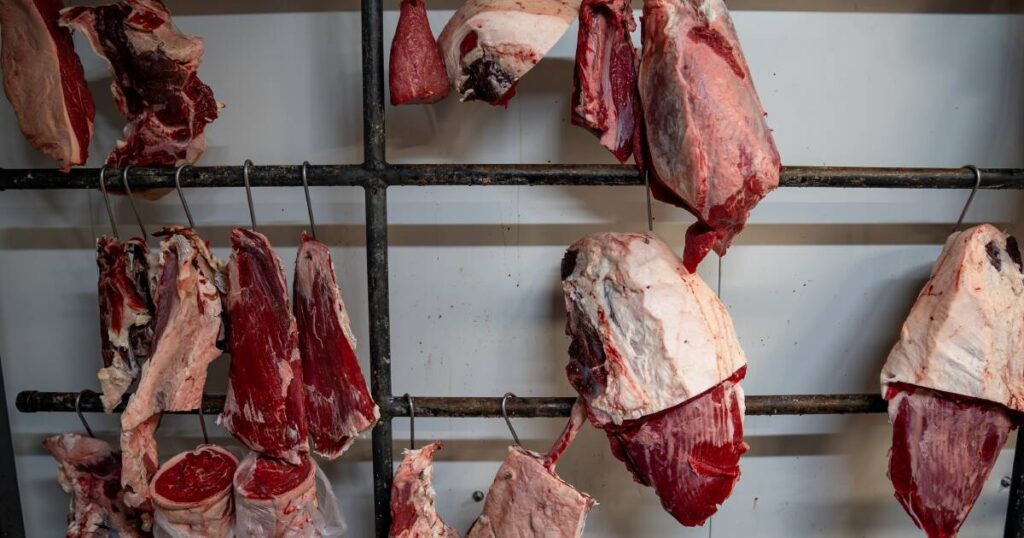
URGENT UPDATE: A shocking proposal by researchers has sparked outrage as it suggests genetically engineering ticks to induce a debilitating allergy to red meat. This alarming concept, discussed in a paper published in July 2023 in the Bioethics journal, has serious implications for personal choice and public health.
The condition, known as alpha-gal syndrome (AGS), can cause severe allergic reactions to red meat, including beef, pork, and lamb, following a tick bite. Symptoms range from gastrointestinal distress to potentially life-threatening anaphylaxis. Once contracted, there is no cure, and individuals must navigate lifelong dietary restrictions. Medical authorities are already expressing concern over the rising instances of AGS, and this proposed solution raises ethical questions that cannot be ignored.
The researchers argue that if meat consumption is deemed ethically wrong, then spreading AGS could be seen as a moral imperative. They refer to AGS as a “moral bioenhancer,” suggesting that it could be used to align individual behavior with collective ethical standards. This radical idea has ignited fierce debate across social media platforms and among health professionals.
Why This Matters NOW: If implemented, this proposal could dramatically alter food consumption patterns and impact farmers globally. Millions of livestock producers could face economic devastation as demand for meat plummets. The repercussions extend beyond the agricultural sector; individuals with food allergies already navigate a world filled with challenges, from reading labels to carrying EpiPens for emergency situations.
The moral implications are staggering. The idea of coercively inducing a health condition to enforce dietary change raises alarms about bodily autonomy and consent. Consent is a fundamental principle in both medicine and ethics, and any proposal that disregards this principle is alarming. This notion of using engineered ticks to alter human health is not only unethical but could also be classified as a violation of personal rights.
Farmers, consumers, and advocates for personal choice are rallying against this proposal, emphasizing that dietary preferences should remain a matter of individual choice, not a forced imposition. Many argue that declaring meat consumption as immoral ignores the nutritional benefits that meat provides, especially for vulnerable populations such as children and the elderly.
The suggestion that AGS could be spread intentionally raises critical questions about the future of food ethics and personal freedom. Advocates for dietary freedom are urging the public to recognize the potential dangers of accepting such extreme measures.
As this story develops, it’s crucial for communities, health advocates, and policymakers to engage in meaningful dialogue about the implications of these proposals. The ethical boundaries of bioengineering and personal choice must be preserved, ensuring that individual rights are upheld in the face of ideological agendas.
What’s Next: The conversation surrounding AGS and its proposed use as a bioethical tool is likely to escalate. Farmers and consumers alike must remain vigilant, advocating for their rights to choose what they eat without fear of coercive measures. This controversial proposal has opened the floor for a much-needed debate on the intersection of ethics, health, and personal freedom.
This urgent news highlights the need for awareness and action as researchers continue to explore radical solutions to perceived ethical dilemmas. As the situation evolves, stay informed and engaged with the latest developments in this critical conversation.






